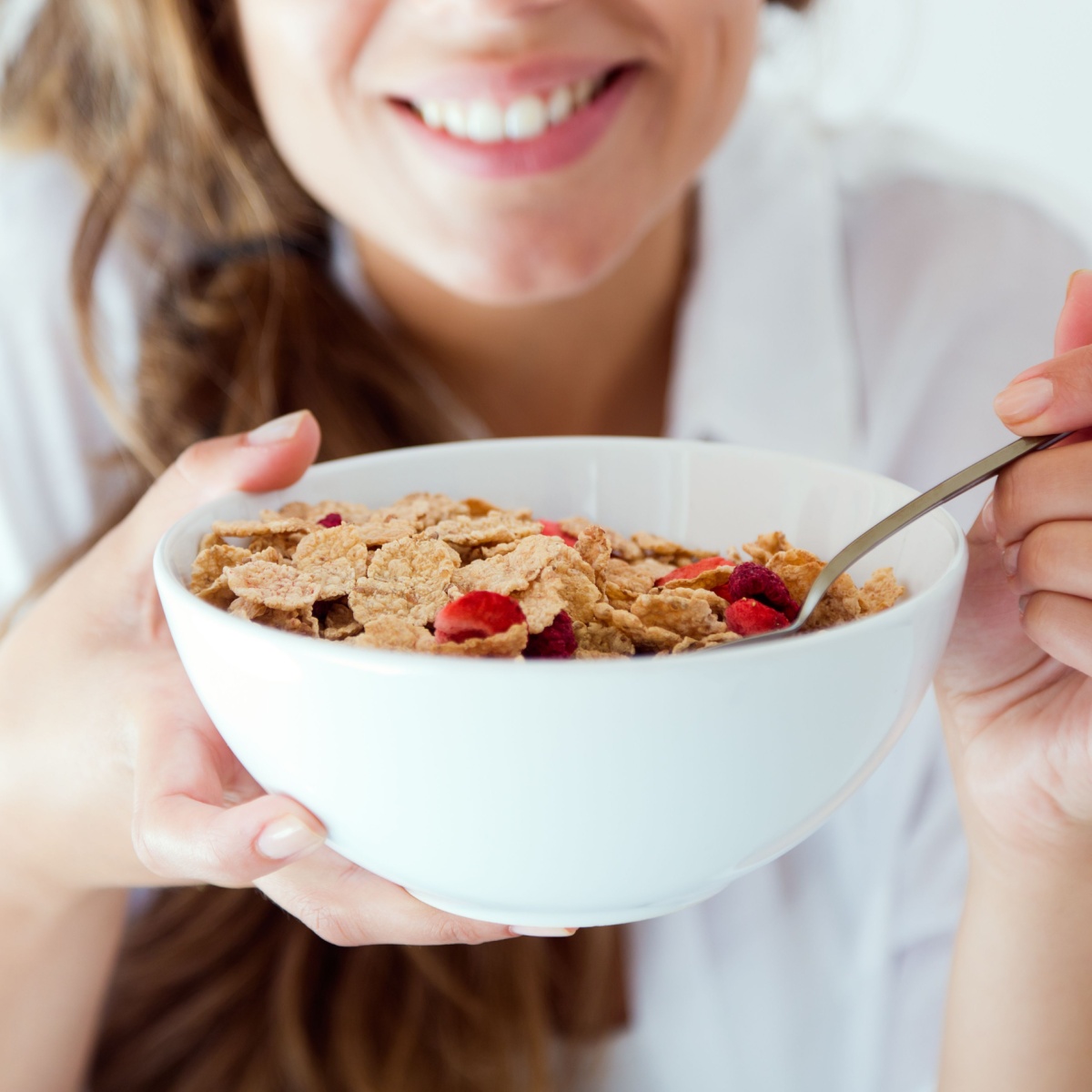
1. Breakfast Cereal
Breakfast cereals are a popular choice for many individuals seeking a convenient and quick morning meal. However, they often contain high levels of refined carbohydrates and added sugars, making them a potential contributor to insulin resistance and weight gain. They are loaded with added sugars, and excessive sugar intake can feed harmful bacteria in the gut, leading to an imbalance in gut flora and potentially causing issues like inflammation and digestive discomfort.
"Not all breakfast cereals are made equal, but they tend to be high in sugar without much other nutritional value. If a cereal doesn’t have fiber, then there is nothing to help regulate your blood sugars," Saari says.
All the added sugars and processed ingredients will eventually play a role in insulin resistance and lead to weight gain.
But, Saari suggests, "If you want to have a morning breakfast cereal, look for one that has less than 10% of the calories from sugar, ideally there should be no sugar added to it at all. You can help to regulate your blood sugars by eating it with chopped fruit for a source of fiber, and milk which is a good source of protein. By having protein and fiber with foods it can help to slowly release sugar to your blood steam which helps to control blood sugar spikes."
2. Baked Goods
Many baked goods, such as pastries, muffins, and sweet bread, are typically high in added sugars. They're also low in essential nutrients like vitamins, minerals, and antioxidants. Consuming a breakfast lacking in nutrient-dense foods can lead to imbalances in gut health and overall metabolic function.
Saari shares her alternatives to baked goods that won't cause your blood sugar to spike, lead to insulin resistance, or affect gut health. "[Baked goods] are loaded with fat and sugar, none of which are beneficial for your health. Rather than stopping at the coffee shop for a pastry, make sure that you have something prepared for yourself in the morning to grab on the go. Make some toast and put all natural peanut butter and bananas on it."
3. Granola Bars
Packed with refined grains, added sugars, and often dried fruits or chocolate chips, granola bars can quickly elevate blood sugar levels. Consistent consumption of these high-carb snacks can lead to insulin resistance over time and the calorie density of granola bars, combined with their high carbohydrate content, can contribute to excessive calorie intake and hinder weight loss efforts if consumed in excess.
Store-bought granolas often contain added ingredients like artificial flavors, preservatives, and colorings. These additives can disrupt gut health by altering the balance of beneficial bacteria in the gut microbiota.
"These are glorified chocolate bars without the satisfaction that you get from eating a chocolate bar. They are high in added sugar and high in calories for a very small amount. Skip the granola bars because they really aren’t adding anything to your diet. If you need a snack throughout the day try making your own trail mix with mixed nuts for protein and healthy fat, popcorn for fiber and whole grains, and a piece of fruit for fiber. This is the ultimate combination to help manage blood sugars and reduce the risk of insulin resistance," says Saari.
4. White Bread and Bagels
White bread and many bagels are made from refined grains, which have had the fiber-rich bran and germ removed during processing. As a result, they lack the fiber content found in whole grains. Fiber plays a crucial role in regulating blood sugar levels, promoting satiety, and supporting a healthy gut microbiota. The absence of fiber in white bread and bagels can lead to imbalances in gut health and contribute to insulin resistance.
"Refined carbohydrates like white bread and bagels lack fiber and can lead to rapid spikes and crashes in blood sugar. Opting for whole-grain or alternative flour options can provide sustained energy and aid in weight loss," Abraham reveals.
5. Processed Breakfast Meats
Processed breakfast meats often contain additives such as nitrates, nitrites, preservatives, and artificial flavorings. These additives can disrupt the balance of gut bacteria and contribute to inflammation in the digestive system, potentially leading to gut health issues over time.
"All processed meats are associated with increased risk for colon cancer, colorectal cancer, and other gastrointestinal cancers, including stomach cancer," explains Hunnes.
"Processed meats include deli meats, salami, pepperoni, hotdogs, bacon, and pretty much anything that has nitrates or has been smoked. One of the best things we can do for our gastrointestinal health, including for bloating and gas, is to eat a whole foods, plant-based, unprocessed foods diet," suggests Hunnes.
"The fiber, the water and hydration, the anti-inflammatory compounds in the fruits and vegetables themselves, and the vitamins and minerals embedded in the frozen vegetables and whole grains are absolutely beneficial for gut health, including for the microbiome,” she explains.


